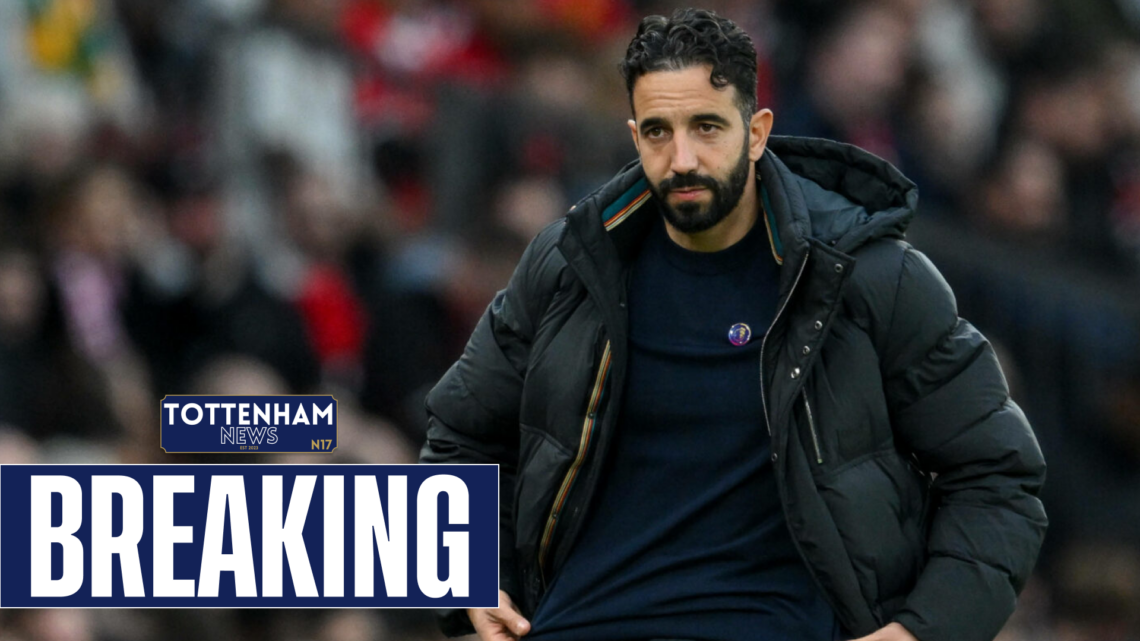
Ruben Amorim sack decision made as Man United lose to Tottenham in Europa League
Ruben Amorim failed to win his first trophy at Manchester United after losing to Tottenham in the Europa League final.
The Portuguese manager, much like Ange Postecoglou, has endured a tough domestic campaign.
Currently, United find themselves in 16th place in the Premier League and will now end the season trophyless after losing 1-0.

United hierarchy make decision to stick with Amorim despite Europa League loss
Both sides went to San Mames knowing that a win would see them qualify for the Champions League, while a loss would end up being a disaster.
Brennan Johnson’s goal saw Tottenham clinch their first piece of silverware since 2008 and their first European trophy since 1984.
For United, it meant no European football next season and a rebuild this summer without having the lure and guaranteed revenues of the Champions League.
| Statistic | Tottenham Hotspur | Manchester United |
|---|---|---|
| Ball Possession | 29% | 71% |
| Expected Goals (xG) | 1.01 | 0.76 |
| Big Chances | 1 | 2 |
| Total Shots | 3 | 12 |
| Goalkeeper Saves | 4 | 0 |
| Corner Kicks | 4 | 4 |
| Fouls | 22 | 9 |
| Passes | 182 | 457 |
| Tackles | 16 | 20 |
| Free Kicks | 9 | 22 |
| Yellow Cards | 3 | 3 |
According to Simon Stone of the BBC, nothing has changed with regard to the Red Devils’ position about sacking Amorim after the final defeat.
INEOS and the Glazers are understood to be backing the former Sporting CP boss, who they hired to replace Erik ten Hag.
There is a feeling that the fans are behind him as well.
Tottenham may look to change managers
Despite Tottenham’s Europa League triumph, Ange Postecoglou’s future at the club remains uncertain due to persistent flaws in his system.
While the Australian manager has brought an attacking, high-pressing style that has yielded moments of brilliance, inconsistencies in defensive structure and squad depth continue to undermine progress.
Spurs’ domestic form has been erratic, with vulnerabilities exposed against top Premier League sides, highlighting issues with tactical adaptability and player fatigue.
The reliance on key individuals, coupled with injury concerns and a lack of cohesive rotation, has led to dropped points in crucial matches.
Critics argue that Postecoglou’s rigid commitment to his philosophy, while admirable, lacks the pragmatism needed for consistent success in England’s top flight.
With mounting pressure from fans and the board for sustained results, the Europa win, though a significant achievement, may not be enough to secure his long-term tenure without addressing these systemic flaws.
